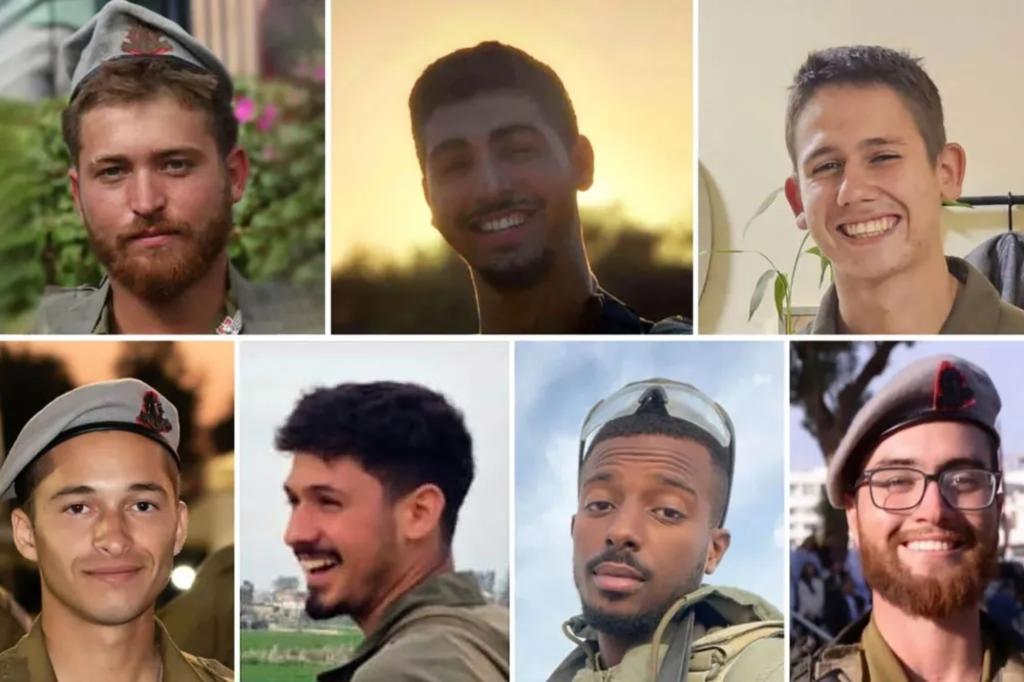
In a devastating escalation of violence, seven Israeli soldiers were killed in one of the deadliest attacks on the Israeli Defense Forces (IDF) in Gaza in recent months. The attack occurred on Tuesday in the southern city of Khan Younis, when a Hamas terrorist attached a bomb to their armored vehicle, the IDF confirmed on Wednesday.
The soldiers, who were on patrol, became victims of a meticulously planned assault. “Helicopters and rescue forces were sent to the spot. They made attempts to rescue the fighters, but without success,” stated IDF spokesman Brig. Gen. Effie Defrin.
Details of the Attack
The soldiers were identified as Lt. Matan Shai Yashinovski, 21; Staff Sgt. Ronel Ben-Moshe, 20; Staff Sgt. Niv Radia, 20; Sgt. Ronen Shapiro, 19; Sgt. Shahar Manoav, 21; Sgt. Maayan Baruch Pearlstein, 20; and Staff Sgt. Alon Davidov, 21. The attack was claimed by Hamas, which continues to engage in hostilities with Israel.
An IDF investigation revealed that the bomb was planted on the soldiers’ Puma armored combat engineering vehicle while they were navigating through Khan Younis. The explosion resulted in a fire that engulfed the vehicle, leading to the tragic deaths of all seven soldiers.
“The heroic soldiers fell in the battle to defeat Hamas and free our hostages in the southern Gaza Strip,” Israeli Prime Minister Benjamin Netanyahu said.
Political and Military Reactions
Prime Minister Netanyahu expressed his condolences, noting the attack brings the total number of Israeli soldiers killed since the onset of the current conflict in Gaza to 860. “On my behalf and on behalf of the citizens of Israel, I send my deepest condolences to the families who lost their dearest loved ones, and I share with them in their unbearable grief at this difficult time,” he added.
The attack underscores the ongoing volatility in the region. Israeli military operations in Gaza have intensified, with Israel asserting that its targets are strictly militant in nature, while accusing Hamas of using civilian areas as shields.
Further Incidents and Regional Tensions
Meanwhile, two other Israeli soldiers were wounded, one seriously, in a separate incident in the Khan Younis area on Tuesday. An RPG was fired at an armored bulldozer they were operating, according to reports from the Times of Israel. Hamas later claimed responsibility for ambushing the soldiers as they sought refuge inside a residential building.
This surge in violence follows a pattern of escalating tensions between Israel and Hamas, with each side blaming the other for the ongoing conflict. The IDF continues to conduct airstrikes targeting what it describes as militant infrastructure, while Hamas persists in its resistance efforts.
Historical Context and Implications
The conflict between Israel and Hamas has deep roots, with periodic escalations often resulting in significant casualties on both sides. The current situation is reminiscent of past confrontations, where ceasefires have been difficult to maintain and peace negotiations remain elusive.
Experts suggest that the international community’s role is crucial in mediating a resolution. However, the complex geopolitical landscape, combined with internal political dynamics within both Israel and Palestinian territories, complicates efforts for a sustainable peace.
According to a recent analysis, “The cycle of violence is fueled by longstanding grievances and a lack of trust between the parties, making diplomatic solutions challenging yet essential.”
As the situation develops, the international community watches closely, with many calling for restraint and renewed dialogue to prevent further loss of life. The implications of continued conflict are profound, affecting regional stability and the lives of countless civilians caught in the crossfire.
The aftermath of this latest attack remains to be seen, but it is clear that the path to peace will require significant efforts from all involved parties.







